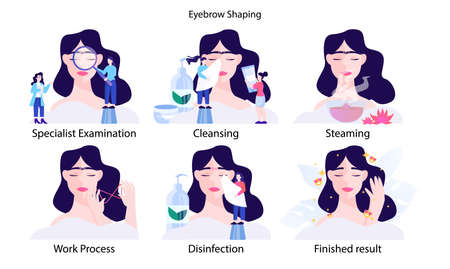Understanding Curly Hair Types
When it comes to selecting the ideal hair styling products for curly hair in the UK, the first step is to understand the unique curl patterns that are common across Britain’s diverse population. The British Isles are home to a wide range of curl types, reflecting a mix of genetic backgrounds and hair textures. Recognising your specific curl type is crucial because the effectiveness of a product often hinges on how well it caters to your individual hair needs. For instance, what works wonders for tight coils may not suit loose waves or classic ringlets.
Common Curly Hair Textures in the UK
| Curl Type | Description | Typical Needs |
|---|---|---|
| Wavy (Type 2) | S-shaped waves, ranging from loose to defined | Lightweight hydration, frizz control |
| Curly (Type 3) | Springy curls, can be well-defined or slightly loose | Moisture retention, definition without heaviness |
| Coily (Type 4) | Tight coils or zigzag pattern, often with shrinkage | Intense moisture, nourishment, and protection |
The Importance of Knowing Your Curl Pattern
Many people in the UK underestimate how much their specific curl pattern influences product performance. Identifying whether your curls are fine, medium, or coarse—and understanding if they’re more prone to dryness or frizz—can help you avoid wasting money on unsuitable products. It also ensures you’re giving your hair the tailored care it deserves, especially given the UK’s famously unpredictable weather which can wreak havoc on moisture levels and styling longevity.
How to Identify Your Curl Type
If you’re unsure about your curl pattern, try examining your hair after washing and letting it air-dry without any product. Look for the shape and size of your curls: Are they loose waves, springy ringlets, or tightly coiled? Alternatively, consult with a British hairstylist experienced with textured hair—they’ll offer guidance rooted in both expertise and local climate considerations.
2. Identifying Common Hair Styling Goals
When it comes to choosing the right hair styling products for curly hair in the UK, it’s essential to first identify your primary hair goals. The British climate, known for its dampness and unpredictable weather, poses unique challenges for those with curls. Whether you’re dealing with persistent frizz, struggling to maintain curl definition, or finding it difficult to lock in moisture, understanding your specific needs is the first step towards building an effective styling routine. Below is a breakdown of common curly hair concerns faced by individuals across the UK, alongside typical goals and suitable product types:
Common Challenge |
Styling Goal |
Recommended Product Types |
|---|---|---|
Frizz Control |
Minimise flyaways and create smooth, polished curls even in humid or rainy conditions. | Anti-frizz serums, smoothing creams, humidity-blocking sprays |
Curl Definition |
Enhance natural curl pattern for bouncy, well-shaped ringlets without crunchiness. | Curl creams, gels (alcohol-free), defining mousses |
Moisture Retention |
Prevent dryness and keep curls hydrated despite hard water and changing weather. | Leave-in conditioners, hydrating oils, deep conditioning masks |
Volume Boosting |
Add fullness to limp curls weighed down by moisture or heavy products. | Lightweight mousses, volumising foams, root-lifting sprays |
The key is to tailor your product choices according to these primary styling objectives. For many in the UK, controlling frizz tops the list due to the frequent drizzle and high humidity levels. However, maintaining curl shape and ensuring adequate hydration are equally important—especially given the prevalence of hard water in many British regions which can strip hair of essential moisture. By identifying your top priorities—be it frizz reduction, curl definition, or hydration—you can start narrowing down the most effective products that will help you achieve healthy, beautiful curls all year round.

3. Key Ingredients to Look For and Avoid
When selecting hair styling products for curly hair in the UK, understanding ingredients is crucial. Curly hair has unique needs: it’s prone to dryness, frizz, and can be easily weighed down by heavy or unsuitable formulations. Here’s a detailed analysis of beneficial and potentially harmful ingredients commonly found in UK haircare products, helping you make informed choices during your next trip to Boots, Superdrug, or your local salon.
Ingredients to Look For
| Ingredient | Benefits for Curly Hair | Typical UK Product Examples |
|---|---|---|
| Coconut Oil | Deep hydration, helps prevent breakage, adds shine | Bouclème Curl Cream, SheaMoisture Coconut & Hibiscus Range |
| Shea Butter | Nourishes, softens curls, locks in moisture | Cantu Shea Butter Leave-In Conditioner, Afrocenchix Smooth |
| Aloe Vera | Soothes scalp, enhances curl definition without heaviness | Bouclème Hydrating Hair Cleanser, Umberto Giannini Curl Jelly |
| Glycerin (Plant-derived) | Draws moisture into the hair shaft, combats frizz (best for humid climates) | Noughty Wave Hello Curl Defining Cream, Only Curls Hydrating Creme |
| Argan Oil | Improves elasticity, tames frizz and flyaways, adds gloss | MorrocanOil Curl Defining Cream, John Frieda Frizz Ease Miraculous Recovery Oil |
| Hydrolysed Proteins (e.g., Wheat Protein) | Strengthens hair structure, reduces breakage from styling or environmental stressors | Aussie Miracle Moist Shampoo & Conditioner, OGX Quenching + Coconut Curls Shampoo |
Ingredients to Avoid or Use with Caution
| Ingredient | Potential Risks for Curly Hair | Common UK Products Containing These Ingredients |
|---|---|---|
| Sulphates (Sodium Lauryl Sulfate/SLS) | Strips natural oils; can leave curls dry and brittle; especially problematic for coily hair types. | Certain traditional shampoos such as Head & Shoulders Classic Clean Shampoo (look for “sulphate-free” labels instead). |
| Silicones (Dimethicone, Cyclopentasiloxane) | Create a temporary smooth feel but may cause build-up over time; require sulphates to remove. | TRESemmé Salon Finish Extra Hold Hairspray; some Pantene styling products (seek “silicone-free” alternatives). |
| Drying Alcohols (Alcohol Denat., Isopropyl Alcohol) | Easily evaporates and dries out curls; can lead to frizz and breakage. | Certain mousse or gel formulas; always check ingredient lists for alcohol content. |
| Parabens (Methylparaben, Propylparaben) | Potential irritants; linked to scalp sensitivity in some users. | Older formulations of mainstream brands—many are now paraben-free due to consumer demand. |
The Importance of Reading Labels in the UK Market
The British market is diverse and increasingly focused on clean beauty. Many products now advertise themselves as “curly girl approved”, “sulphate-free”, or “natural”. However, these terms aren’t strictly regulated—so always read ingredient lists rather than relying solely on front-of-pack claims. Independent UK brands like Bouclème and Flora & Curl are setting high standards by formulating specifically for British weather conditions and local water hardness.
Summary Tip:
If you’re new to decoding product labels or overwhelmed by choices on the high street or in salons across London, Manchester or Glasgow—start by seeking out key moisturising ingredients while steering clear of harsh sulphates and drying alcohols. Your curls will thank you with bounce and vibrancy tailored to the UK’s unique climate!
Types of Styling Products for Curly Hair
When it comes to managing and styling curly hair in the UK, the product market can seem overwhelming. Understanding the different types of styling products is crucial for selecting what best matches your unique curl pattern, weather conditions, and desired finish. Here’s a breakdown of the most popular categories you’ll find on British high streets and online retailers, alongside their primary benefits.
Creams
Styling creams are a staple for many with curls, especially in the damp British climate. These products typically offer moisture, frizz control, and soft hold without leaving hair crunchy. Creams are ideal for those wanting to define curls while maintaining natural movement—a perfect fit for day-to-day wear or when battling humidity during a typical UK drizzle.
Gels
Gels remain popular for their ability to provide long-lasting hold and definition. They’re particularly useful if you want to lock in your style against unpredictable UK weather, from windy days in Brighton to rainy afternoons in Manchester. Modern gels are often alcohol-free, reducing dryness and crunchiness, and some even contain added conditioning agents for extra curl care.
Mousses
Mousses offer lightweight volume and definition, making them excellent for finer curls or those seeking bounce without heaviness. In the UK, where limp curls can be a challenge thanks to moisture-laden air, mousse provides structure without sacrificing softness or creating build-up. It’s also quick to apply—great for busy mornings before heading out on the commute.
Leave-in Conditioners
Leave-in conditioners are indispensable for hydration and detangling, especially after a brisk walk through London’s parks or a swim in the local leisure centre. They help prep curls before further styling, keeping strands moisturised and less prone to frizz throughout the day.
Comparing Product Benefits
| Product Type | Main Benefit | Best For | Typical Finish |
|---|---|---|---|
| Creams | Moisture & Frizz Control | Medium-Thick Curls; Dry Hair | Soft & Natural |
| Gels | Strong Hold & Definition | Tight Curls; Humid Weather | Sleek & Defined |
| Mousses | Volume & Lightweight Hold | Fine Curls; Volume Seekers | Bouncy & Airy |
| Leave-ins | Hydration & Detangling | All Curl Types; Daily Use | Nourished & Manageable |
Choosing What Suits Your Style Goals
Your choice of product should depend on your curl type, local climate (think rainy Glasgow versus sunny Cornwall), and the look you’re aiming for—whether that’s defined ringlets for a night out or soft waves for an everyday vibe. Mixing and layering these products is common practice among UK curlies: for instance, pairing a leave-in with gel for both moisture and hold ensures your curls look their best regardless of what the British weather throws at you.
5. Considering Local UK Brands and Availability
When selecting hair styling products for curly hair in the UK, its essential to consider not only the products formulation but also its availability and suitability to the local climate. The British market is home to a variety of reputable brands that cater specifically to textured and curly hair. Supporting these brands can often mean better-suited products for the UKs unique weather, as well as easier access through both high street stores and online platforms.
Reputable British and European Curly Hair Brands
| Brand | Origin | Key Features |
|---|---|---|
| Bouclème | UK | Natural ingredients, curl-specific, eco-conscious |
| Curlsmith | UK/EU | Vegan formulas, free from sulphates and silicones, highly rated by UK curlies |
| Noughty | UK | 95% natural, affordable, easily found in Boots/Superdrug |
| Umberto Giannini Curl | UK | Cruelty-free, widely available, great for wavy to coily textures |
Finding Curly Hair Products on the UK High Street
The high street offers a range of options for curly hair care. Major retailers like Boots, Superdrug, Holland & Barrett, and even some larger supermarkets have dedicated sections for textured hair. Look out for special offers or loyalty programmes which can help you save on repeat purchases. Smaller independent shops in multicultural areas can also stock niche or imported lines not found elsewhere.
Tips for Shopping Online in the UK
- Check large e-commerce sites such as Lookfantastic, Feelunique, Beauty Bay, and Cult Beauty, which often carry exclusive British and European ranges.
- If youre after specific international brands, specialist websites like British Curlies, NaturallyCurly UK Shop, or Sally Beauty UK may offer wider selections.
- Always filter by UK Shipping to avoid high import fees and ensure quick delivery.
Avoiding Disappointment: Stock Levels and Product Launches
Certain popular products may sell out quickly following social media trends or influencer recommendations. To stay ahead, sign up for restock alerts on retailer websites or follow your favourite brands social media channels for early access to new launches. Buying directly from brand websites can sometimes offer exclusive bundles or discounts only available to UK customers.
Selecting locally available and trusted brands not only supports the UK beauty industry but also ensures you have reliable access to your favourite curly hair essentials—helping you maintain healthy curls whatever the British weather throws your way.
6. Tips for Testing and Choosing Your Products
When it comes to selecting the perfect hair styling products for curly hair in the UK, a thoughtful approach to testing and trialling is essential. Given the unique combination of British weather — which can range from damp drizzle to dry central heating indoors — and the prevalence of hard water in many regions, your hair’s needs may be different from those abroad. Here are practical strategies and tips to help you find products that really work for you.
Review Strategies for Trialling New Products
Start small by purchasing travel or sample sizes, especially if you’re trying a brand for the first time. Many UK high street retailers, chemists, and salons offer testers or mini bottles, allowing you to gauge how your curls react without committing to a full-sized product. When possible, patch test new formulas on a small section of your hair before applying all over — this minimises risk if the product isn’t compatible with your curl type or scalp sensitivity.
Making Use of Testers: Where to Find Them
| Retailer | Types of Testers Available | How to Access |
|---|---|---|
| Boots/Superdrug | Travel-size bottles, sachets | In-store beauty aisles |
| Lush/The Body Shop | Open pots/tubs for sampling texture & scent | Ask staff for assistance |
| Salon Chains (e.g., Toni&Guy) | Professional lines, demo days | During appointments or special events |
| Online Retailers (Lookfantastic/Cult Beauty) | Sample bundles with purchase | Add-on at checkout or promo offers |
Building a Tailored Haircare Routine for UK Conditions
The UK’s climate and hard water can both impact curly hair by causing frizz, dryness, or product build-up. When building your routine, consider layering lightweight leave-in conditioners with heavier creams or gels only as needed—this helps prevent weighed-down curls in humid weather. If you live in a hard water area, incorporate a clarifying shampoo once a week to remove mineral build-up without stripping moisture.
Routine Example for UK Curly Hair:
| Step | Product Type | Purpose |
|---|---|---|
| 1. Cleanse (Weekly) | Sulphate-free/clarifying shampoo | Remove hard water residue & product build-up |
| 2. Condition (Every wash) | Hydrating conditioner/mask | Nourish & restore moisture balance |
| 3. Style (Daily/as needed) | Curl cream/gel/mousse | Define curls & control frizz against humidity |
| 4. Protect (Overnight) | Satin bonnet/pillowcase, lightweight oil | Reduce friction & lock in hydration overnight |
Ultimately, patience is key: give each new product at least two weeks before judging results, as curls often need time to adjust. Keep notes or photos of how your hair looks and feels after each wash day to track what’s working best for your unique curl pattern and local conditions.


